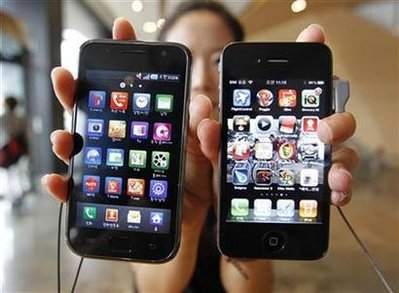Apple said today that it has filed a lawsuit in South Korea which accuses Samsung Electronics of copying its products.
Somewhere Steve Jobs is probably very angry. According to AFP, it’s the latest round of their international legal slap fight.
“We have filed a lawsuit against Samsung with the Seoul Central District Court,” Steve Park, a spokesman for Apple Korea, told Dow Jones Newswires.

Apple Korea said in a statement it was “no coincidence that Samsung’s latest products look a lot like the iPhone and iPad, from the shape of the hardware to the user interface and even the packaging.
“This kind of blatant copying is wrong, and we need to protect Apple’s intellectual property when companies steal our ideas,” it said.
The South Korean company said that Apple’s latest lawsuit wouldn’t disturb its own lawsuit.
“We will continue to actively defend and protect our intellectual property and to ensure our continued innovation and growth in the mobile communication business,” it said in a statement.
Samsung and Apple’s light slappings (in a legal sense) of each other are quickly turning into close fisted blows to the face.
In April Apple filed suit against Samsung in San Francisco with claims that the Korean company copied its smart phones and tablet computers. They feel that fine line between imitation and copying has been crossed.
Later in April Samsung responded with a lawsuit in Seoul declaring five patent infringements by Apple. It filed separate actions in Tokyo, naming two patent infringements, and in the German city of Mannheim naming three.
Samsung’s Galaxy Tab has been a best-selling competitor to the iPad, which has a stranglehold on the developing market for the touchscreen devices.
Don’t let their lust for blood in the legal arena fool you; the two tech companies have a cozy business relationship.
In 2010 Apple was Samsung’s second-largest customer after Japan’s Sony Corp, making up four percent of the South Korean firm’s 155 trillion won ($142 billion) annual income.






